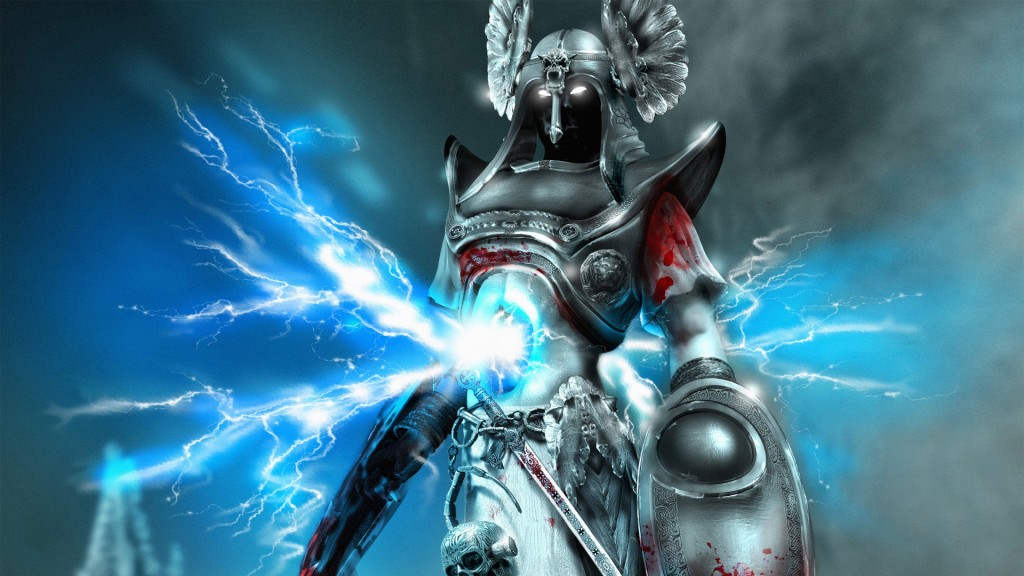The Knight, the Lance and the Lightning Bolt July 11, 2014
Author: Beach Combing | in : Medieval , trackback***dedicated to Typhon who asked this question***
You are a knight, a protector of the realm and an important local landowner. You are, as befits your station, mounted and covered from head to toe in plate armour: the only thing you see is the narrow line of sight afforded to you by the eye slot in your upper helmet, partly obscured by a hand-me-down visor. However, even locked into this trotting iron coffin you do notice the flash of lightning and if you blink and miss it you certainly catch the sound of rolling thunder. A storm is coming toward you. What is your first reaction? Well, if you know even elementary laws of physics very, very great fear, because you are a lightning conductor. If the storm passes overhead and if there is no church in the locality (we are a good dozen miles from your castle) then you will be the jumping off point for the electrostatic rage in the sky. If the science stands up – and surely an ironed-up man on horseback with a vertical lance in his right hand is an invitation to Jove, Thor or any other sky god who has had a bad day? – then there can be only one question.
Why don’t we have a score of records from the Middle Ages of knights getting zapped by bolts? Particularly as this was an age when lightning (aka ‘fire from heaven’) was seen as God’s will manifest below and was noticed. I cannot find a single reference from the six or seven centuries when men were riding around in sardine tins. Again why?
One possibility is that a suit of armour might attract lightning but also protect the wearer: the lightning would pass over the surface of the armour and burn the skin but not blast its full force into the body. (Incredibly intelligent scientifically-minded people have set themselves the task of answering this question: (1) and (2). Historians have time to kill, scientists should know better.)
The other possibility is that there was medieval knowledge about lightning: not the dynamics of electricty but an understanding that lightning ‘loves’ high metallic things. Perhaps the knight faced with spring storms simply stripped off and waited for the tempest to pass?
A chance thought here at the end: horses are often spooked by electric storms. Maybe knights dismounted because of the unpredictablity of their steed?
Other answers or better still lightning charred knights: drbeachcombing AT yahoo DOT com
11 July 2014: GMcD writes: Your knight is safe because the metal of his armor is not in contact with the ground (the electrical ground that the lightning is going for). A dismounted knight in full plate, e.g. English in the later parts of the 100 Years War or the War of the the Roses, would be in much more danger. The lance is not an issue because only the point is metallic. The wooden shaft is an insulator. Alan meanwhile writes ‘I’m sure others have already pointed this out, but a suit of armour forms a Faraday cage which protects the wearer. As far as lightning is concerned, a knight in armour would be the safest man on the battlefield!’ Jim considers: I think the problem is that he would be burnt to death from the heat.’ Chris S writes ‘They knew well enough to come in out of the rain, lest they get rusted up like a Tin Woodsman.’ Thanks all!
17 Aug 2014: Andy and Alan send in this fascinating article that suggest again the Faraday cage. Rather her than me…



